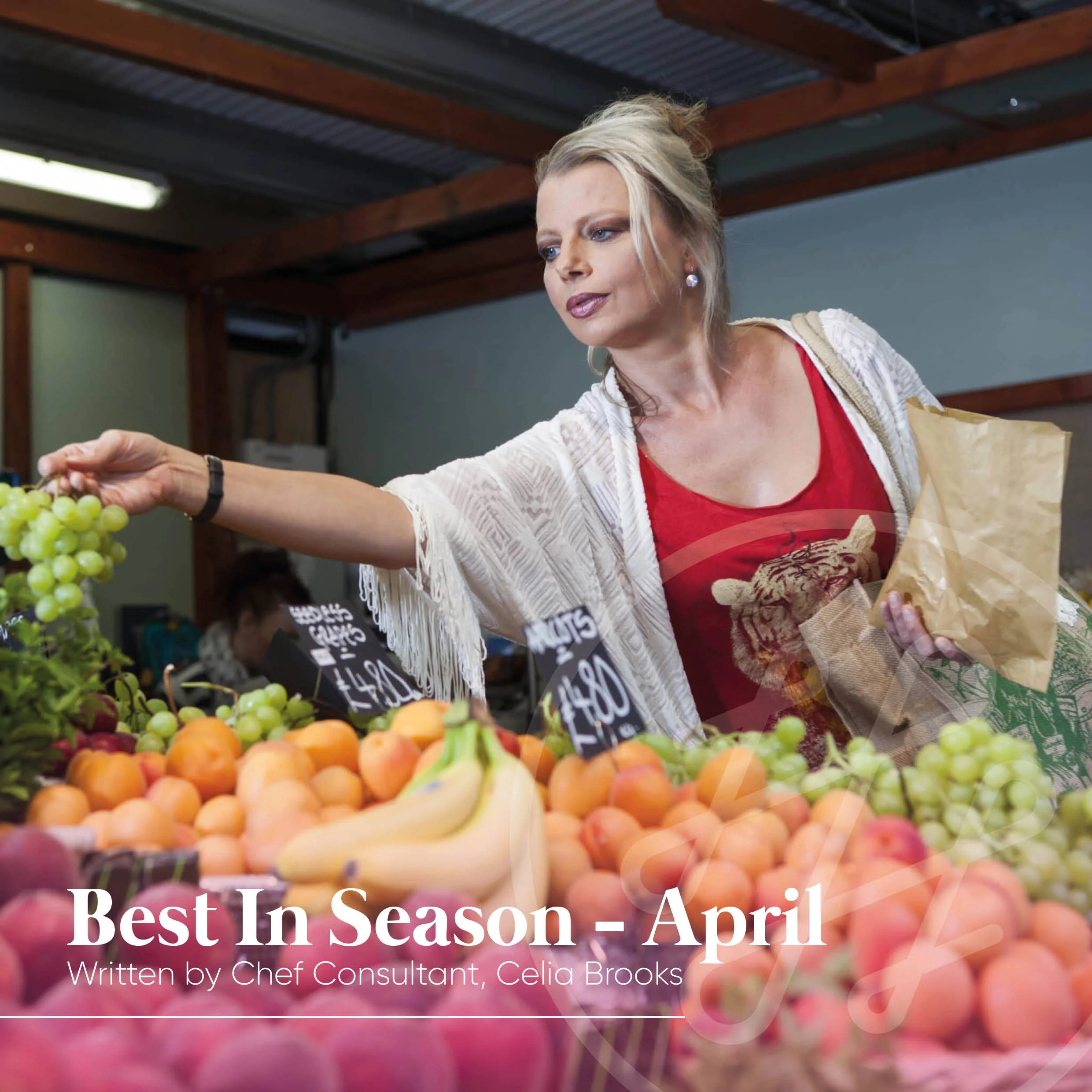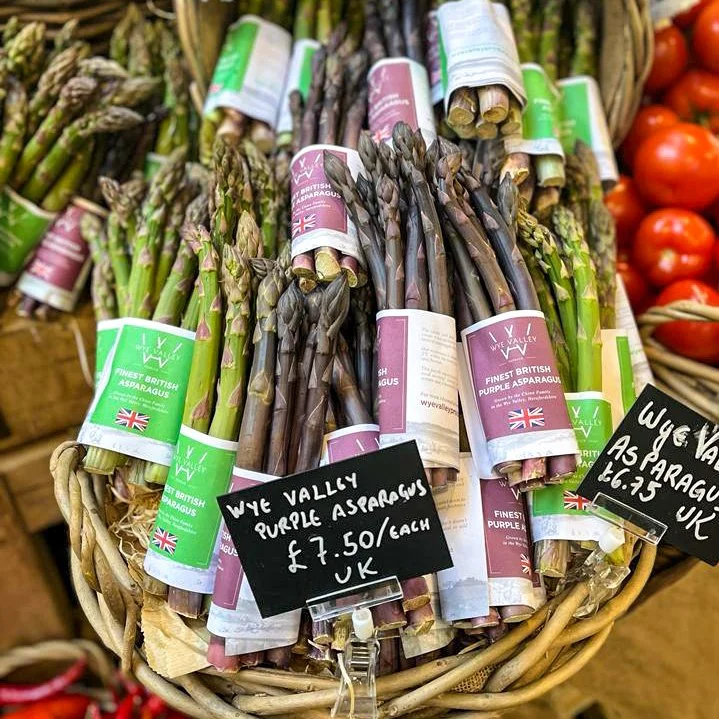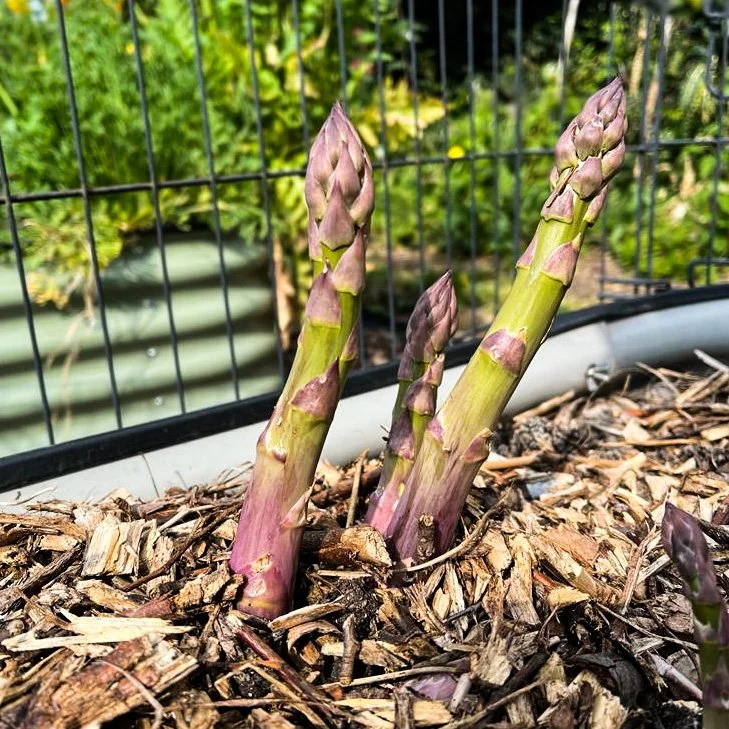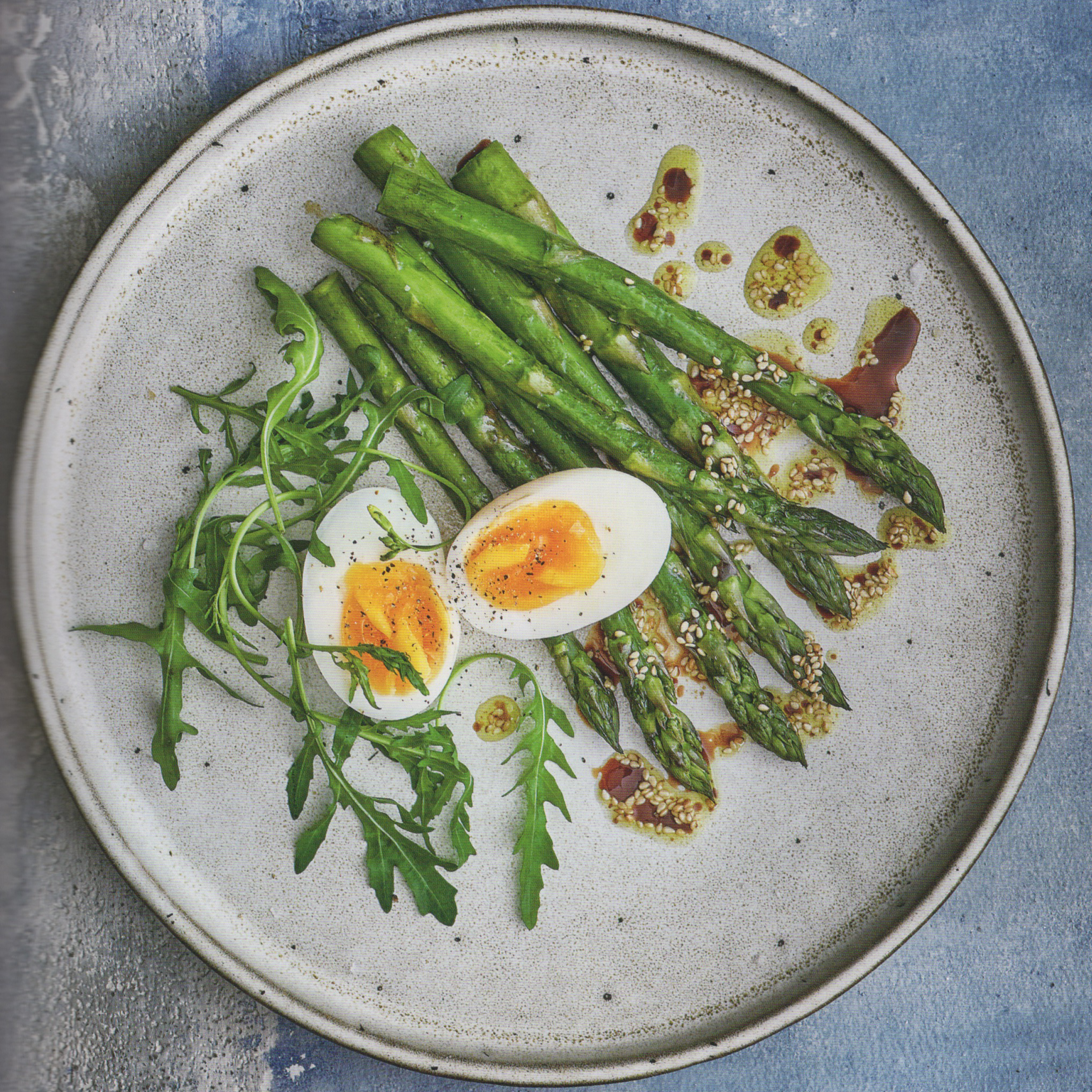Best In Season - April - written by Chef Consultant, Celia Brooks
Hooray! It’s asparagus time!
Where can you get the most delicious asparagus on the planet? Right here in Britain, that’s where. This is a well-known fact amongst chefs, food writers and asparagus connoisseurs. England has the perfect asparagus growing conditions, but the season is achingly short - traditionally it starts on St. George’s Day (April 23) and finishes on Midsummer’s Day (June 21).
It’s imperative that farmers stop the harvest at the end of June, even though the plants will keep forcing out their juicy spears all summer. As the spears are cut, it signals the plant to keep producing more shoots. However, the cutting needs to stop so the plants can take a break and be left to bloom into tall grassy fronds through the summer and autumn. This allows the plants to replenish their resources for next year’s season. If you’ve ever grown asparagus, you’ll know how astonishingly fast it grows in cutting season - the spears reach skyward at an incredible speed of up to 10cm a day! That takes a lot of energy, and the plants need the time from July through March to build up their strength again.
So grab English asparagus while you can, and hurry up and eat it - asparagus tastes sweeter when eaten as close to harvest time as possible. That’s another reason why English asparagus tastes so amazing - it hasn’t traveled very far from farm to fork.
Not only does asparagus bring delight in the eating, but your body will thank you for eating it too. Asparagus acid, which not surprisingly is unique to asparagus, is a powerful antioxidant, so a great immune system booster. It also contains saponins, which are super-powerful anti-inflammatories, and a host of other beneficial nutrients including zinc and folate. Eat more asparagus and live longer!
Each asparagus spear has a woody end where it’s cut from the ground, and modern kitchen wisdom says that if you snap asparagus towards the bottom it will break where the woodiness stops (you can also just trim an inch or two off with a knife). But don’t waste those woody ends! They make a lovely soup, boiled until meltingly soft with leeks, onions, potatoes and a flavourful stock, then blended until smooth. If you don’t want to use them right away, just pop them in a sealed bag and store in the freezer.
I think asparagus is best enjoyed without being adulterated. Simply steamed and slathered with butter is my favourite treatment. It certainly doesn’t mind being covered in a blanket of velvety Hollandaise sauce either, and tastes wonderful in an omelette. In fact eggs and asparagus are great chums, and I’ve got a recipe below that marries the two in a salad to great effect - in this case, the asparagus is roasted in the oven. The umami-rich sesame balsamic dressing is perfect for glorifying asparagus without interfering with its delicate flavour, and it also marries beautifully with eggs that have been boiled just until the yolks are fudgy. It’s a filling, fuss-free salad for spring.
Roasted asparagus & egg salad
From “SuperVeg: The Joy & Power of the 25 Healthiest Vegetables on the Planet”, by Celia Brooks, published by Murdoch Books
Photo by Jean Cazals
Serves 2 - 4 / Prep 15 mins / Cook 15 mins
Ingredients
4 large eggs
400g green asparagus spears, lower parts of stems trimmed
2 teaspoons extra virgin olive oil or cold-pressed rapeseed oil
sea salt
100g baby salad leaves (rocket, baby chard, watercress, pea shoots)
For the sesame balsamic dressing:
20g sesame seeds, toasted (2 tablespoons)
30ml best balsamic vinegar
30ml dark soy sauce or tamari
50ml extra virgin olive oil or cold-pressed rapeseed oil
Special equipment: large baking sheet; non-stick foil or baking paper
Method
1) Heat the oven to 220C. Line the baking sheet.
2) Place the eggs in a small saucepan and cover with cold water. Cover and bring to the boil, then simmer for 5-6 minutes. Drain and rinse the eggs under cold water until completely cool, then peel and cut into quarters. (This cooking technique should result in yolks that are slightly undercooked and fudgy - not powdery like hard-boiled eggs. Cook them 4-5 minutes longer if you prefer them well done.)
3) Meanwhile, place the asparagus on the baking sheet and add the oil. Toss with your hands to coat evenly. Sprinkle with a touch of salt. Roast for 5 minutes until bright green and just tender.
4) Arrange the salad leaves on a platter and top with asparagus (warm or cold), and the eggs. Pour the dressing over and serve.




